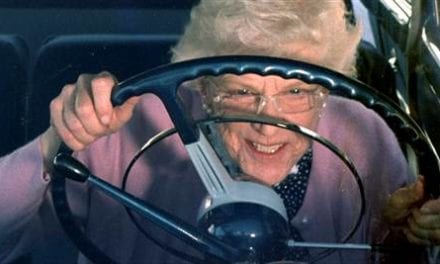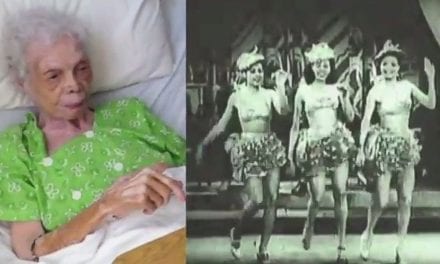By Jack York
Like most other people I know, I share the discomfort in knowing how to address race issues. You want to be true to your beliefs and reflect on what those beliefs are, but you also are concerned about how anything you say might appear to either be pandering or be misconstrued. I have trouble putting issues that are complicated and emotional into a simplified box. The things that we have seen are easy to see as wrong, but the solutions to fix them can be complicated.
Listening Is the Key
Last week I read Steve Moran’s column about racism and it did hit me how white the industry of senior living is at a management level. That really can’t be denied. One of my takeaways from Steve’s column was to actively listen – not one of my natural strengths. And to me the most logical person to listen to was Deke Cateau, CEO of A.G. Rhodes, a nonprofit nursing home provider in Atlanta. He is a good friend and a warrior for culture change for his staff and the elders they empower. I’ve known Deke for a while, he’s been a fan of iN2L and of the work we’ve done with Francis from Cameroon. Not surprisingly, he was willing to talk and to open up about the whole uncomfortable issue of racism.
Deke’s Story
We all have our stories and Deke’s is a good one. He grew up in Trinidad, not the U.S. Deke made a big point of how being raised there had a huge influence on his thinking and his success. “Where I grew up,” Deke relays, “I was used to black people running the government, running businesses, running most of society. From that upbringing I never felt like I had to prove anything to anybody, I never felt in the minority.”
Of course today Deke lives in the U.S. with his wife who is from New York and is in the healthcare arena. And through a series of coincidences and listening to his faith, he wound up in senior living.
He explains, “I worked in the financial industry and my wife was in health care and always told me that I would be a good fit in her world. Life and God opened up a door for me with a community that needed some help in their business office. I took a leap of faith that I could make a difference in the lives of seniors and it wound up completely changing my career. The rest is history.”
A.G. Rhodes
A.G. Rhodes, with three metro Atlanta locations, has been a thriving organization for well over a century. Deke became CEO three years ago. He worked his way through the company’s ranks: first as Administrator of their flagship location, then as Chief of Strategic Implementation and Chief Operating Officer before taking over the CEO slot.
Their flagship location in the City of Atlanta has a majority black population of residents and staff at over 94%. And there are varying levels of diversity at the other sites. Each home is very different and diverse, yet their senior management and boards are majority white.
“My background, growing up in Trinidad has allowed me to feel confident in a somewhat uncomfortable situation. I am very confident in a leadership role. But in business meetings and in the boardrooms of several organizations where I serve, it can be intimidating to be the minority.”
Senior Living & Diversity
Deke had some interesting thoughts about the industry of senior living and its lack of diversity at a management level. “I have reflected on this over the years,” he explains. “There are subtle, unconscious biases. But if you peel back the layers and try to understand someone’s circumstances and life history then you can actually harness that into better leadership.”
Deke alluded to a checkbox that many employers go through during the recruitment and interview processes. And he suggested that expanding that checkbox to assess different perspectives can be helpful. I asked him to be specific. What could a check-the-box question be? He came up with this one: “Our staff is majority black. Have you managed a predominately black workforce before and how would you implement cultural competencies to ensure that the workforce can thrive in cross-cultural situations?” That’s a question I’m sure doesn’t show up in too many interviews!
| Have you managed a predominately black workforce before and how would you implement cultural competencies to ensure that the workforce can thrive in cross-cultural situations? |
The Future
On a personal level, Deke has no issue about his journey, his confidence and his success have served him well. But he does worry about his kids and how being black works against them in this country. He has seen his 13-year-old son, a talented soccer player, have to overachieve to get the same accolades as many of his white peers. And he’s seen his daughters (in their late teens) deal with racism multiple times as they were growing up. And on a practical level, he sometimes fears for them.
What Can a White Guy Do?
When I got to the last question, the simple “what can a white guy do these days?” Deke’s answer was simple and direct. He said listen, be reflective, and be intentional. Those are great nuggets of advice for me and a lot of my peers. I know I’m torn with what I see and how I feel, but those three things resonate.
There are things we all can do if we look hard in the mirror. I asked Deke what he’s optimistic about and what he’s pessimistic about and got two straightforward answers. He is optimistic that change is brewing and that we will see true equality and inclusion.
He is pessimistic about how soon this would happen as he thinks words without actions are meaningless. And many who may be speaking out now are not willing to implement the systemic changes needed in our organizations. [Editorial note: I so agree with that. There are companies racing to make grandiose statements that can turn out to be meaningless!
A Big Thanks
Deke, thanks for taking the time to talk and politely opening my eyes a bit. My commitment to you is that I’ll check back in a couple of months and tell you how I’ve tried to become intentional by listening and being reflective. I’ll just tell you! I don’t think we need to shout from the mountaintops about what we’re doing.
It is a tricky time for all of us. Painful, reflective, and so often divisive. Deke’s comments rang true to me. I fall into the category of having a lot of privilege – economically, great parents, good health, great family, good schools I grew up attending. But I choose not to feel guilty about any of that, I had nothing to do with those circumstances. But I’m extremely grateful for what I’ve been given and would rather respond to the moment by doing what I can driven from a spirit of gratefulness rather than guilt.
I appreciate my kids through all of this. I’ve been enthralled to see my daughter Perrin (who many of you saw on American Idol!) becoming politically involved for the first time in her life. My two other sons, JP and Nathan, have differing views than I do, but we have respectful conversations and all listen to each other. There’s a lot of good coming out of the pain.
My last bit of advice is simple. Anyone who like me has a friend like Deke, go find them, talk to them . . . and listen.









Attention CCRC management: in finding someone to talk to, as the above article recommends, don’t forget to look to your staff in the trenches and talk with them. Here’s why:
Please look again at the article’s title and connect the dots:
Do you have cottages? If so, the CCRC residency contracts more than likely include weekly or bi-weekly housekeeping. Have you thought about any cultural divides when it comes to housekeepers needing to quickly respond to “calls of nature”? If you don’t yet get my drift, where do they “go” when out doing their jobs, not close to the Big House? If you have not addressed this type of situation with both your workforce and residents, then you would do your workforce a big favor by walking in their shoes and having a dialogue.